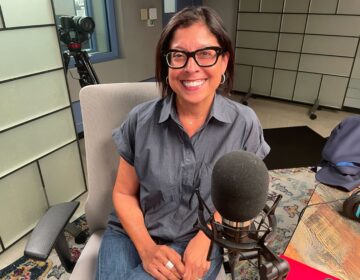Roxborough and Hunting Park West industrial zones, they are a-changing
In a January city Planning Commission meeting, John Grady, the senior vice president of the Philadelphia Industrial Development Corporation made a claim that might stun some: Philly, he said, is not a post-industrial city.
According to the PIDC’s “Industrial Land & Market Strategy for the City of Philadelphia” report, which the Planning Commission accepted at the meeting, one out of five jobs in the city is industry-based. This translates to $5 billion in wages, says Grady, and $323 million in city taxes. And if the PIDC meets a goal set forth in its report, there will be more 22,000 more industry-based jobs in the next 20 years — equaling an additional $1 billion in wages.
The report identified 15 main industrial zones throughout the city, where Grady says 80 percent of Philadelphia’s total industrial uses are located. These zones take up about 21 percent of the city’s land area. The key to meeting PIDC’s goal of bringing more industrial work to the city, says Grady, is rethinking and sometimes remapping this industrial land.
Looking at local industrial zones
Two of the report’s industrial zones were in Northwest Philly: Roxborough and Hunting Park West. (It’s important to note, however that these “zones” don’t take up the entire neighborhoods of Roxborough and Hunting Park West. Rather, the zone in Roxborough is mostly comprised of Umbria Street, and the zone in Hunting Park West encompasses everything from the Queen Lane water treatment plant to parts of Allegheny West.
What the report says about Roxborough and Hunting Park West could affect businesses and residents there for years to come. One of the study’s goals is to influence future land-use decisions, in order to grow and shape industry in the city.
The Planning Commission emphasized, however, that these are are merely guidelines — it can or cannot follow them, though executive director Gary Jastrzab says they’ll likely adhere to them much of the time during the upcoming remapping of the city. The Planning Commission’s remapping process will take several years to complete. And it will begin only after the Zoning Code Commission’s rewrite of the zoning code goes to City Council — which is scheduled for February — and if Council approves it.
“With Philadelphia 2035 and the rezoning of the city taking place,” says Grady, “we thought it was the perfect time to look at how to more rationally allocate our land.”
Stimulating investment
A good portion of PIDC’s report suggests redeveloping land that is currently zoned as industrial, but not used as such. But the report identified the Roxborough and Hunting Park West zones as transitioning areas, which were once much more industrial, but are now home to a mix of residential, commercial and industrial uses. It suggests that portions of Roxborough and Hunting Park West zones be remapped accordingly, as “IRMX,” aka industrial residential mixed-use, and light industrial, respectively. “IRMX,” a new industrial district that the Zoning Code Commission created in its proposed rewrite of the city’s zoning code, would bring together live-work uses, neighborhood-oriented commercial uses and low-impact manufacturing uses, like artists’ lofts.
Grady says this would allow for more uses in the Roxborough zone that are currently mapped “G2,” or general industrial.
“The idea is to stimulate investment and provide commercial amenities that are consistent with growing and stabilized residential areas — to allow these things as matter-of-right,” he says. “Also, while continuing with some of the industrial job-producing activity already in Roxborough, it would allow for wholesale services that might not be permitted as matter-of-right now.”
This remapping, Grady says, would lock in the transition that is already taking place in the area, and make it easier for developers who want to bring more mixed uses to the Roxborough zone, since they wouldn’t need to apply for variances if a project was of-right.
The report made very similar recommendations for the Hunting Park West zone, which was the eighth biggest industrial zone in the city, according to PIDC.
“We identified Hunting Park West as one of the transitioning areas. We recommend zoning that allows for continued industrial growth, as well as non-industrial uses,” says Grady. “We’re recognizing these trends and want them to be zoned appropriately.”
Check out what PIDC’s report says about the rest of the city on PlanPhilly.
WHYY is your source for fact-based, in-depth journalism and information. As a nonprofit organization, we rely on financial support from readers like you. Please give today.




